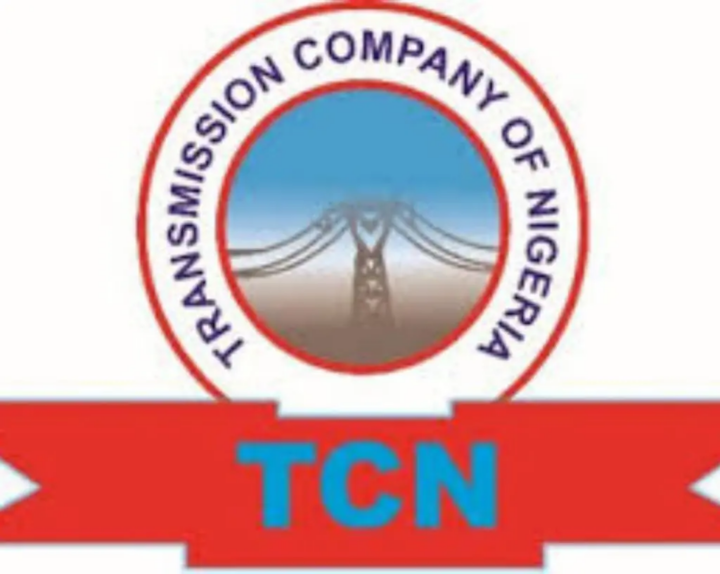The Transmission Company of Nigeria (TCN) has reported that suspected vandals have destroyed a section of its high-voltage transmission line connecting Gombe and Damaturu, resulting in a partial disruption of electricity supply to parts of the North-East region. The company described the act as a setback to its ongoing efforts to stabilize power delivery in the area.
According to a statement issued by the TCN management, the incident occurred along the 330kV transmission line linking Gombe and Damaturu, one of the key power infrastructure routes supplying electricity to Yobe and Borno States. Preliminary investigations by the company’s technical team revealed that some tower members were deliberately cut, causing one of the towers to collapse.

The company said the vandalism was discovered following a sudden loss of power supply to Damaturu and its surrounding communities. Technicians dispatched to inspect the line confirmed that the damage was caused by human interference. “Our engineers discovered that tower members on the Gombe–Damaturu line were cut, leading to the tower’s collapse. This act of vandalism has disrupted bulk power transmission to Yobe and parts of Borno,” the statement read.
The General Manager, Public Affairs of TCN, Ndidi Mbah, condemned the incident, describing it as “an economic sabotage against the collective progress of Nigeria’s power sector.” She noted that while the company’s engineers have been mobilized to commence immediate repair works, security agencies have been alerted to investigate and apprehend those behind the attack.
“We are working closely with the security operatives to track the perpetrators of this act. The destruction of critical transmission infrastructure not only leads to power outages but also causes significant financial losses and delays in our national grid stabilization efforts,” Mbah said.
The TCN spokesperson added that temporary measures were being put in place to restore power supply to the affected areas pending the completion of full repairs. The company has also appealed to host communities to assist in safeguarding public infrastructure against recurring vandalism.
This latest incident adds to a growing list of vandalism attacks on Nigeria’s power infrastructure in recent years. Similar cases have been reported in parts of Kaduna, Benue, and Plateau states, where transmission towers and substations were destroyed, leading to widespread blackouts. Industry experts have repeatedly warned that such acts contribute significantly to the instability of the national grid.
An energy analyst, Dr. Olumide Adefemi, said the frequent vandalization of power installations undermines government investment in the energy sector. “When transmission towers or lines are attacked, it disrupts power flow across regions, and the cost of replacement is enormous. These acts of sabotage discourage private investment and slow down the pace of power reform,” he explained.
Dr. Adefemi also called for stricter penalties for offenders, stressing that power infrastructure should be treated as national security assets. “We need to classify these acts as economic terrorism. The government must step up surveillance and enforcement to protect these critical assets,” he added.
Communities affected by the outage have expressed frustration over the recurring attacks on power installations. Residents of Damaturu and Buni Yadi in Yobe State reported power outages lasting several hours since the incident occurred, forcing businesses and households to rely on generators and alternative power sources.
A trader in Damaturu, Musa Ibrahim, lamented the frequent disruption of electricity in the area. “Every time we start to enjoy stable power, something happens. We are tired of using generators and spending money on fuel. Government should do more to secure these lines,” he said.
In response, TCN has reiterated its call for community vigilance and cooperation. The company urged residents living near transmission lines to promptly report suspicious activities to local authorities or TCN offices. “Protecting national assets is a collective responsibility. We appeal to communities to be our eyes and ears on the ground,” the company stated.
The Minister of Power, Chief Adebayo Adelabu, also condemned the attack, describing it as “a reckless assault on Nigeria’s quest for energy security.” He reaffirmed the government’s commitment to strengthening power infrastructure protection through collaboration between TCN, security agencies, and local communities.
Adelabu noted that the federal government has already commenced a nationwide plan to deploy surveillance technologies, including drones and sensor-based monitoring systems, to secure transmission assets across the country. “We cannot achieve stable electricity if critical infrastructure is continuously under attack. The new monitoring framework will help us respond faster and deter future incidents,” he said.
While repair works are ongoing, TCN has assured affected customers that efforts are being made to ensure minimal disruption to power supply. The company also hinted at plans to replace damaged steel structures with reinforced materials to reduce susceptibility to vandalism.
As Nigeria continues to expand its electricity transmission network, the challenge of infrastructure vandalism remains a major obstacle. Stakeholders are now urging both the federal and state governments to prioritize the protection of energy assets as part of the country’s broader economic security strategy.
The Gombe–Damaturu incident serves as another reminder of the urgent need for vigilance and collaboration in safeguarding Nigeria’s power infrastructure. Without such collective effort, experts warn, the goal of achieving stable and affordable electricity for all may remain out of reach.
Support InfoStride News' Credible Journalism: Only credible journalism can guarantee a fair, accountable and transparent society, including democracy and government. It involves a lot of efforts and money. We need your support. Click here to Donate
